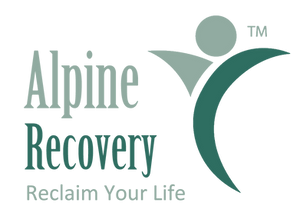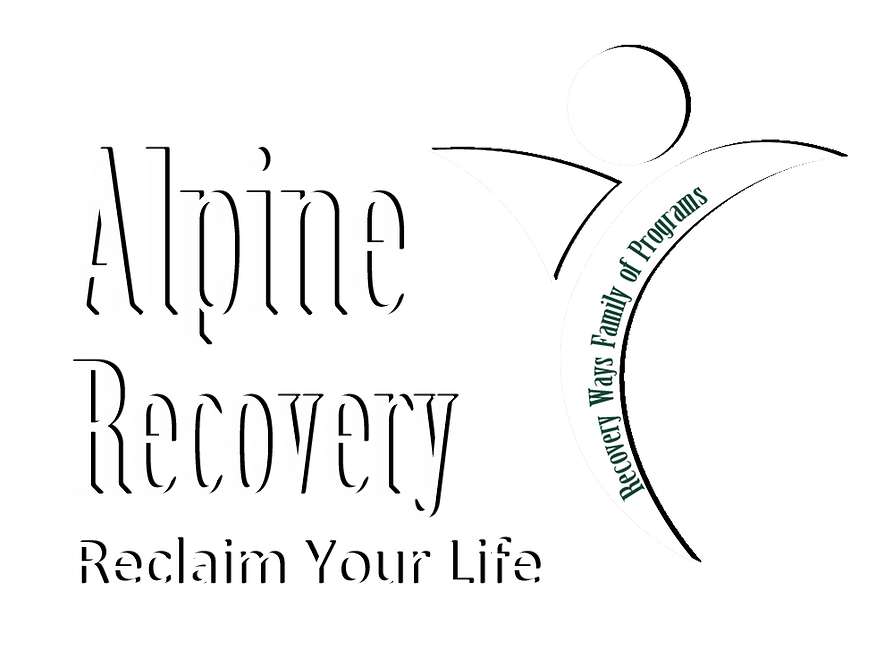
Exploring Inpatient Treatment Options
Inpatient drug treatment in Everett, offered by facilities like Alpine Recovery, provides a structured and supportive environment for individuals dealing with addiction. This approach allows patients to reside at the treatment center full-time, providing them with a stable and substance-free environment conducive to recovery. Inpatient treatment is often recommended for those with severe or long-standing addictions, as well as those who have struggled with relapse in the past.
The full-time care experienced at Alpine Recovery ensures that patients are closely monitored by healthcare professionals. This level of care can be critical for managing withdrawal symptoms and any co-occurring mental health conditions that might complicate the recovery process.
Benefits of Personalized Care
Alpine Recovery emphasizes the importance of personalized care in inpatient drug treatment in Everett. Each patient’s journey to recovery is unique, requiring a tailored approach to address specific issues and goals. Personalized care plans are developed through comprehensive assessments conducted by trained professionals who consider the individual’s history, needs, and preferences.
- Customized treatment plans that address both addiction and any underlying mental health issues.
- One-on-one therapy sessions to explore personal challenges and triggers.
- Involvement of family members to provide additional support and understanding.
This individualized approach ensures that treatment is as effective as possible, helping patients build the skills needed for long-term recovery.
The Role of Evidence-Based Practices
The cornerstone of Alpine Recovery’s inpatient drug treatment Everett lies in evidence-based practices. These approaches incorporate proven therapeutic techniques such as Cognitive Behavioral Therapy (CBT) and Dialectical Behavioral Therapy (DBT), which have shown significant success in treating addiction.
By integrating these methods into treatment plans, Alpine Recovery ensures that clients receive high-quality care. This commitment to evidence-based practices not only enhances recovery outcomes but also assures clients and their families of the legitimacy and safety of the therapeutic interventions used.
Holistic Approaches to Treatment
Alpine Recovery understands that recovery is not solely a physical process but a comprehensive healing journey that encompasses mental, emotional, and spiritual health. This belief underscores their holistic treatment programs, which include a variety of practices designed to promote overall well-being.
These holistic options may include mindfulness meditation, which helps patients focus on the present and manage cravings, and yoga, which can improve physical health and mental balance. Additionally, nutrition education is provided, ensuring that clients maintain a healthy diet, which is critical to physical wellness and recovery success.
Importance of a Supportive Community
Alpine Recovery places a strong emphasis on community as a key element of its inpatient drug treatment Everett. Patients are encouraged to engage with peers who are also on their recovery journey, fostering an environment of mutual support and understanding. This community aspect is crucial for building trust and a sense of belonging, which can be instrumental in overcoming feelings of isolation often associated with addiction.
Being part of a supportive community helps individuals share experiences, challenges, and successes, paving the way for genuine connections that can last well beyond the program duration.
The Aftercare Planning Process
Successful recovery extends beyond the inpatient treatment period, which is why Alpine Recovery prioritizes aftercare planning. This stage involves creating a comprehensive post-treatment plan to help individuals transition back to everyday life. The aftercare plan might include ongoing outpatient therapy, support groups, and regular check-ins with counselors to monitor progress and address any potential challenges.
Aftercare planning is crucial for preventing relapse and ensuring long-term recovery. Alpine Recovery’s ongoing support and resources empower clients to apply what they’ve learned during treatment to real-life scenarios, greatly enhancing their ability to maintain sobriety.
Detoxification and Withdrawal Management
Detoxification is often the first step in the inpatient drug treatment Everett process for many individuals. At Alpine Recovery, detox is medically supervised, ensuring patients’ safety and comfort as they rid their bodies of substances. Proper management of withdrawal symptoms is crucial, as untreated symptoms can lead to relapse or other health complications.
Medical staff are on hand 24/7 during this critical phase to provide necessary interventions and support, making the detox process as smooth and pain-free as possible, while preparing clients for further treatment work.
Family Involvement in Recovery
Alpine Recovery recognizes the significant role family plays in recovery. Involving family members in treatment can enhance the healing process, not only for the individual in recovery but also for their family. Educational sessions provide valuable insights into addiction and recovery, helping family members better support their loved one’s journey.
These sessions also create a platform for open communication, where families can resolve any conflicts and restore trust, setting the foundation for a strong support system that continues after discharge from the program.
Measuring Success in Recovery
Success in inpatient drug treatment Everett is not just measured by abstinence but by the overall improvement in quality of life. Alpine Recovery evaluates success through various metrics, such as improved mental health, better relationships, and restored career or educational pursuits. Continuous monitoring of these aspects helps ensure sustained recovery.
Patients are encouraged to set personal goals, and progress is regularly reviewed to make necessary adjustments to treatment plans, ensuring that each individual receives the best possible support to succeed in their recovery journey.
Staff Expertise and Care
The team at Alpine Recovery is composed of experienced and compassionate professionals dedicated to providing exceptional care. From licensed therapists to experienced counselors, each staff member plays a vital role in delivering effective inpatient drug treatment Everett. They work collaboratively to ensure all aspects of patients’ needs are addressed.
This expert guidance offers patients the reassurance they need to embark on their recovery journey with confidence, knowing they have a knowledgeable and supportive team by their side.

How long can you stay in inpatient rehab?
The duration of stay in inpatient rehab can vary significantly depending on the individual’s needs, the severity of the addiction, and the treatment plan recommended by professionals. At Alpine Recovery, the length of stay is typically determined after a thorough assessment. Some individuals might need a short-term program of about 28 to 30 days, while others may require longer treatment durations ranging from 60 to 90 days or even more. The focus is on ensuring that each person receives the time and care necessary to address their specific challenges and to develop a solid foundation for recovery. Clients are encouraged to work closely with their care team to determine the optimal duration for their inpatient treatment.
How long do people get inpatient treatment?
The length of inpatient treatment varies, but a common framework includes programs lasting 30, 60, or 90 days. Research shows that longer treatment durations often result in better recovery outcomes, and Alpine Recovery aims to tailor treatment lengths to the needs of each individual. The initial assessment plays a crucial role in determining the appropriate timeframe, ensuring that clients have adequate time to heal and learn essential coping strategies. Ultimately, the goal is to ensure that individuals feel ready and supported to transition back into their daily lives with confidence and resilience.
Is inpatient treatment worth it?
The investment in inpatient treatment is often considered highly valuable for individuals dealing with severe addiction. At Alpine Recovery, inpatient care provides a structured environment free from the usual triggers and distractions of everyday life, allowing individuals to focus entirely on their recovery. The comprehensive support from experienced professionals and the peer community can significantly enhance one’s ability to achieve lasting sobriety. Additionally, the holistic and evidence-based approaches offered ensure that patients not only address their addiction but also work on improving their overall well-being. The personalized care and intensive focus on healing the whole person make inpatient treatment a worthwhile commitment for many.
Is inpatient treatment considered hospitalization?
While inpatient treatment might share some similarities with hospitalization, such as receiving care in a residential setting, it is distinct in its focus and approach. Inpatient treatment centers like Alpine Recovery provide a more therapeutic and less clinical atmosphere than a hospital, aiming to create a welcoming and supportive environment conducive to healing. The emphasis is on long-term recovery through personalized care plans, therapy, and holistic treatments rather than acute medical intervention. This distinction is crucial for individuals seeking a nurturing setting rather than a hospital’s more sterile, acute care focus.
What role does family play in recovery at Alpine Recovery?
Family involvement is a cornerstone of the recovery process at Alpine Recovery. By actively engaging family members in treatment, the facility not only supports the individual in recovery but also helps to rebuild and strengthen family dynamics. Family therapy sessions offer a platform for addressing misunderstandings, fostering open communication, and providing education about addiction and recovery. This involvement can lead to a more supportive home environment, which is critical for long-lasting recovery. Families learn to become allies in the recovery journey, offering empathy, support, and accountability as their loved ones work towards sobriety. This collaboration often leads to better outcomes and more enduring relationships post-recovery. Feel free to reach out if you have any questions about how family involvement can be integrated into your treatment plan!
Resources
- Substance Abuse and Mental Health Services Administration (SAMHSA) – SAMHSA is a government agency that leads public health efforts to advance the behavioral health of the nation.
- National Institute on Drug Abuse (NIDA) – NIDA is a research institute that aims to advance science on the causes and consequences of drug use and addiction.
- American Psychiatric Association (APA) – APA is a professional organization representing psychiatrists in the United States, dedicated to ensuring humane care and effective treatment for all persons with mental disorders.
- National Alliance on Mental Illness (NAMI) – NAMI is a mental health advocacy organization that educates, supports, and advocates for individuals and families affected by mental illness.
- Centers for Disease Control and Prevention (CDC) – CDC is a national public health institute in the United States that works to protect public health and safety through the control and prevention of diseases.


